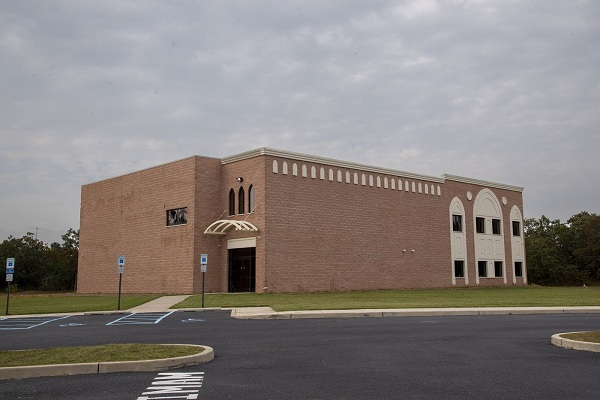South Jersey Mosque Reaches $550,000 Settlement in Discrimination Case

The nonprofit Garden State Islamic Center and the City of Vineland, in Cumberland County, settled the 2017 case in August and recently finalized terms of the agreement, said Aymen A. Aboushi, the group’s attorney. There was no admission of wrongdoing by the city, he said.
Besides the financial settlement, the city agreed to issue a certificate of occupancy needed to open the second floor of the mosque, Aboushi said. The mosque, which has about 220 members, had been unable to operate fully without the use of the second floor, he said.
Aboushi said the mosque opened about three weeks ago after receiving the certificate of occupancy. That document enabled it to fully provide congregational and educational programs and child-care services, he said.
“They’re ecstatic to have this behind them, and practice their faith and enjoy their civil liberties as Americans,” Aboushi said Thursday. “The case is resolved to our satisfaction.”
City Solicitor Rick Tonetta and Mayor Anthony Fanucci did not respond to requests Friday seeking comment.
The settlement ends litigation spanning more than a decade between Vineland and Garden State Islamic Center that began when the group first sought permits in 2009 to build the mosque. At issue in the latest case was a debate over sewage and water usage.
The center filed suit in US District Court in Camden three years ago after the city refused to issue the certificate of occupancy, alleging the city “unreasonably and unilaterally rescinded the pre-construction permits” and “engaged in a pattern and practice of discriminatory conduct.”
Vineland threatened to shut down the mosque and issued Garden State Islamic Center a $50,000 property tax bill in 2015, even though the group is a tax-exempt religious organization, the suit alleged.
In addition to raising constitutional objections, the center said the city’s actions violated the Religious Land Use and Institutionalized Persons Act of 2000. The law protects houses of worship from zoning discrimination.
The city planning board approved the group’s site plan for a three-level house of worship in 2011 after reaching a settlement in an earlier complaint filed in state court. A year later, the city “inspected and approved” the center’s septic system and issued a temporary certificate of occupancy, allowing the center to open a one-level mosque, according to the suit.
The center said the city wrongly determined that the mosque’s sewage flow exceeded 2,000 gallons per day, a threshold that requires state approval for new septic and waste management systems.
That calculation grossly overestimated how many people visit the building each day, according to the Garden State Islamic Center. That methodology has not been imposed upon other religious and secular institutions, the center said.
Aboushi said the legal battle put a “big cloud” over the mosque, although members were still able to worship. The expansion included lecture rooms, a library, offices and restrooms, which could not be used without the certificate of occupancy.
“People were hesitant to come and congregate at the mosque,” Aboushi said. “People stayed away because they weren’t sure it was a viable mosque.”
 Most Commented
Most Commented 


